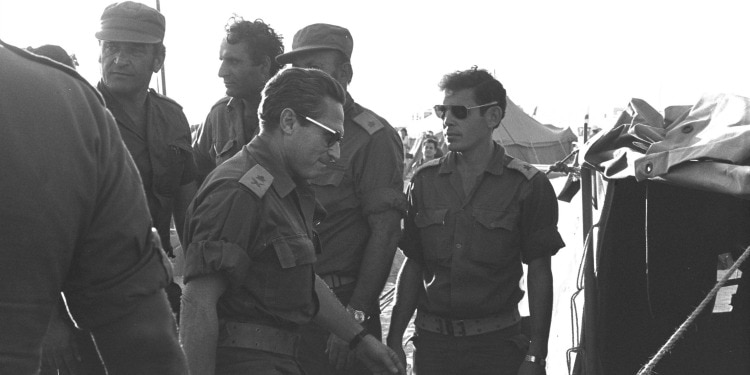An Officer and a Gentleman
The Fellowship | September 6, 2019

Aharon Yariv
December 20, 1920 – May 7, 1994
Born to a Jewish family in Moscow, Yariv made aliyah (immigrated to the Holy Land) at the age of 15. Once he was 18, Yariv began his military service with the Haganah, the precursor to the IDF.
Serving in the IDF, Yariv worked his way up to commanding the Golani Brigade. After serving as Israel’s military attache to the United States, he then served as head of the IDF’s military intelligence unit from 1964 until 1972, including as a key leader during the 1967 Six-Day War. The end of his time in this role saw the Palestinians carry out a massacre of Israeli athletes at the 1972 Munich Summer Olympics. After this horrific attack, Yariv became Prime Minister Golda Meir’s counterterrorism advisor and directed Operation Wrath of God, which targeted the terrorists responsible. Yariv’s part in this operation was depicted in the Steven Spielberg film, Munich.
During 1973’s Yom Kippur War, Yariv led Israel’s delegation to disengage from conflict with Egypt. That same year, he was elected to the Knesset (Israel’s parliament), where he served as both Transportation Minister and Information Minister.
Throughout his life of service to the Jewish state, Yariv was known for his communications and negotiating skills. These were especially on display when he was called out of retirement at nearly 70 years old in 1990. Terrorists had kidnapped dozens of children from a school for Ethiopian Jews. Thanks in part to Yariv’s calm and cool, the children were released unharmed.
When General Yariv passed away four years later, Israeli Prime Minister Yitzhak Rabin eulogized this warrior and servant of the Holy Land:
Today we say farewell to an officer and a gentleman. Today we part from…a commander whose thoroughness and professionalism characterized the IDF for a generation — a man bereft of pretentiousness; who always spoke in question marks, never exclamation points; who always researched, asked, inquired; never banged a table; and never saw himself as the final arbiter.
I am parting today, personally, from one of the best people who were at my side on the eve of the Six-Day War. The intelligence that Arale supplied me as Chief of Staff, to IDF commanders and their troops, was perfect, one of the central components of our victory. Today, for the last time, we tell him thanks. Thanks in the name of the soldiers. Thanks in the name of the mothers. Thanks in the name of the citizens of Israel.
